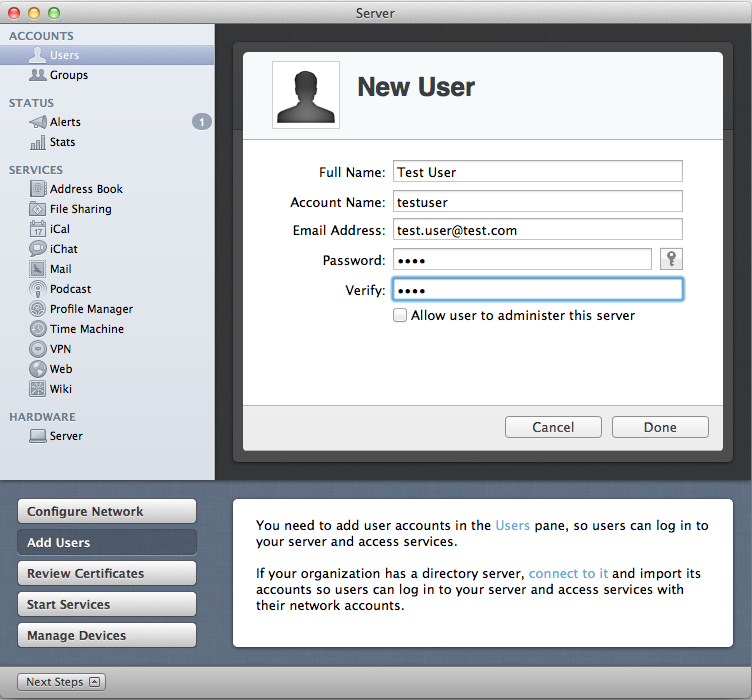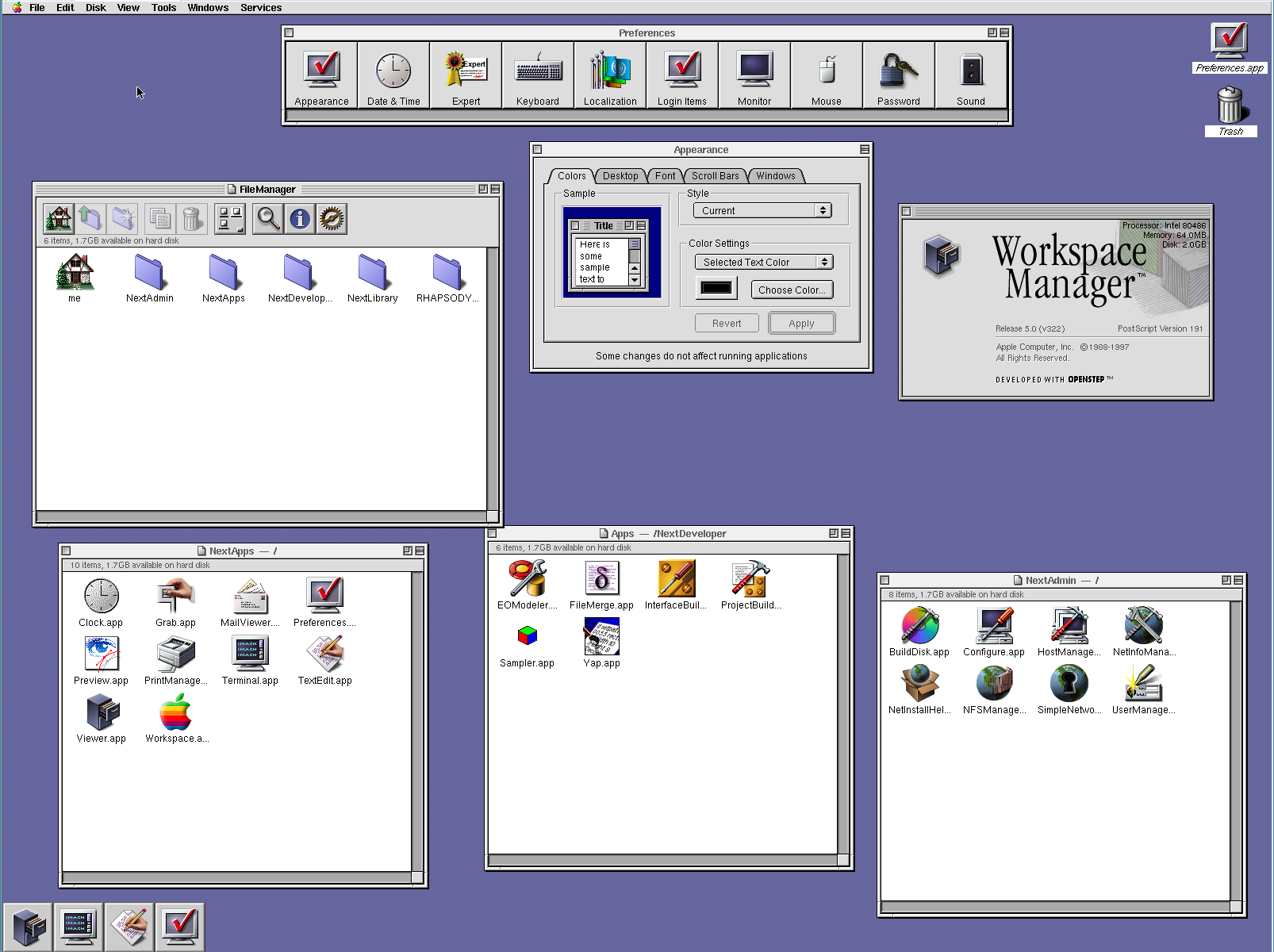

Shared domains also allow systems administrators to define custom user environments. The shared domain can also allow users to access resources on other servers that are bound to the domain.


Mac OS X Server relies on shared Open Directory domains to provide network user accounts that can be used to log into computers that are bound to a shared domain. This local domain allows each user to have a computing experience and home directory, and the local domain works with the file system to manage permissions on files and folders. On April 21, 2022, Apple announced it would be discontinuing macOS Server and that future versions of macOS would drop support for it.Every Mac OS X computer includes a local Open Directory database-referred to as a domain-that stores information about local user accounts. The latest version of macOS server only includes functionality related to user and group management, Xsan, and mobile device management through profiles. MacOS Server at one point provided network services such as a mail transfer agent, AFP and SMB servers, an LDAP server, and a domain name server, as well as server applications including a Web server, database, and calendar server. Versions of Mac OS X Server prior to version 10.7 “Lion” were sold as complete, standalone server operating systems starting with Mac OS X 10.7 “Lion,” Mac OS X Server (and its successors OS X Server and macOS Server) have been offered as add-on software packages, sold through the Mac App Store, that are installed on top of a corresponding macOS installation.


 0 kommentar(er)
0 kommentar(er)
